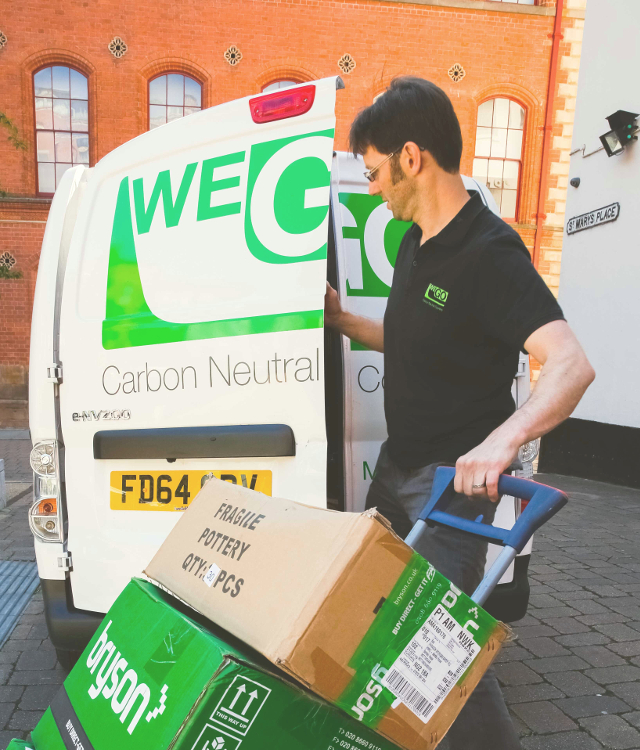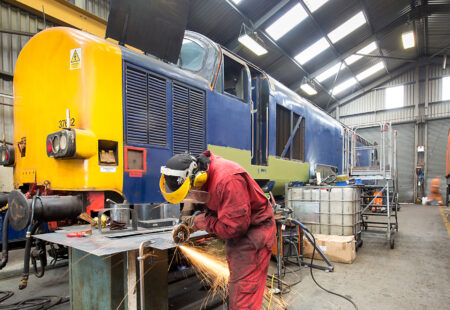Low carbon economy and high speed digital get £17m boost
Ambitions for a more digitally connected and ‘greener’ East Midlands’ economy are to receive a boost in 2017, thanks to £17million of investment via the D2N2 Local Enterprise Partnership.
D2N2 has opened up bids for funding for two major programmes; one to extend the roll-out of faster broadband technology across its area, and the other to promote more energy efficient business operations and grow the low carbon economy. D2N2 is a private sector-led partnership of business, local authorities, skills and training providers, and community and voluntary services organisations promoting economic and jobs growth across Derby, Derbyshire, Nottingham and Nottinghamshire.
Organisations with projects which they believe can fulfil these aims can now apply for support from the two programmes; which are both funded via the European Regional Development (ERDF) portion of D2N2’s wider €250million European Structural and Investment Funds (ESIF).
There is £6.5million available for projects designed to enhance access to, and the use and quality of, information and communications technology (ICT) across the D2N2 LEP area.
This includes extending fibre broadband availability and the roll-out of high-speed networks, and to support the adoption of emerging technologies and networks for the digital economy by businesses.
The aim is to enable more small and medium-sized enterprises (SMEs) to gain access to superfast – 30 megabits per second (mbs) or above – and high growth firms to gain access to ultra-fast (100mbs or above) fibre broadband, through the provision of infrastructure (including cabling and broadband ‘cabinets’).
Applications must be for projects worth a total of one million pounds, with bidders prepared to provide up to 50% matched funding (£500,000).
The deadline for applications for funding is Friday February 17 (2017).
There will be £8.5million available for projects which support the region’s attempts to shift to a ‘low carbon’ economy. This is one where businesses use less energy from burning fossil fuels (coal, oil and gas) – which produce the carbon dioxide and other emissions linked to global warming and climate change – through improving their energy efficiency, or by making more use of renewable energy alternatives (solar, wind and water, for example).
The D2N2 ‘low carbon’ programme, just announced, is calling for projects which will promote:
- production and distribution of renewable energy;
- more efficient use of energy, and of renewable energy, in business;
- energy efficiency, smart energy management and renewable energy use in the public sector, including in public buildings and the housing sector;
- strategies which reduce carbon dioxide and other emissions for all types of environment, including urban areas;
- research and innovation in, and adoption of, low-carbon technologies.
Applications must be for projects worth a total of one million pounds, with bidders prepared to provide up to 50% matched funding (£500,000).
Funding is technically available until October 31, 2017, but project organisers are advised to make an outline application as soon as possible, as there will be an assessment of the first group of applications received by February 17 (2017).
In both cases, D2N2 will advise Government on which of the projects applying for funding have the best fit with the LEP’s own Strategic Economic Plan. Those project bidders will be asked to make a fuller application, giving more details of their proposed project, which will then be assessed and decided on by the Department for Communities and Local Government.
Projects funded by both of the above programmes would need to be completed within three years of their start (approximately mid-2020).
David Ralph, Chief Executive of the D2N2 Local Enterprise Partnership, said:-
“Better digital connectivity, improved energy use and ‘low carbon’ growth opportunities are important business drivers, but they can prove expensive considerations for smaller enterprises.
“D2N2 has been supporting projects which help companies on both fronts for some time, with investment to help SMEs access low carbon technologies and in widening broadband access across the two counties we cover. These two new major programmes will enable us to do even more to help businesses in our area and we are keen to see some ambitious projects coming forward.”




